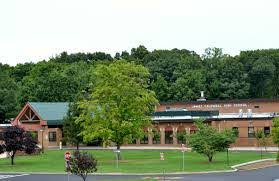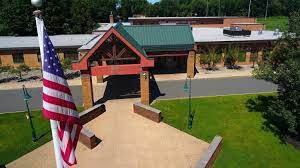Imagine being able to replicate the evolution of life on earth or design more efficient traffic patterns with just the execution of a single program. Although it may sound like the job of a supercomputer, such as task will potentially become the job of a standard commercial quantum computer.
D-Wave, a Canadian computer company, recently began marketing the D-Wave One, which the company claims is, “a high performance computing system designed for industrial problems encountered by Fortune 500 companies, government and academia.” Rather than making spreadsheets, the D-Wave, the first commercial computer of its kind, is designed to solve problems, such as how satellites would react to a solar burst, which would take normal computers weeks to figure out.
While current computers alter binary digits (or bits), a series of ones and zeroes used to represent on and off, respectively, between two different states, quantum computers utilize a property of matter at the smallest scale called superposition, through which a quantum bit (or qubit) can be in multiple states at the same time. Rather than having to manipulate bits between states, quantum computers utilize the ability to have bits as both one and zero simultaneously, which allows them to make an almost infinite number of computations at once.
This additional processing power without the use of traditional transistors allows the computer to find solutions to non-traditional problems without the use of complicated algorithms. In instances where the solution can only be found through guess-and-check methods and there are no hints to the solution, such as an encryption, quantum computing excels. Even in the field of genetics, researchers believe that quantum computing could be utilized to determine the behavior of proteins in the human genome, or even help in finding treatments or cures for diseases like cancer.
So far Lockheed Martin, a major defense contractor responsible for the development of planes like the F-35 and C-130, has been one of the first major company to accept D-Wave’s claims. Back in May 25, 2011, it was announced that Lockheed Martin planned to purchase one of the first commercial computers. Ray Johnson, the Chief Technical Officer at Lockheed Martin, planned to use D-Wave One to design and test out experimental systems like radar and aircraft controls.
Big names like Jeff Bezos, the founder of Amazon.com, companies like Microsoft and Google, and even some government agencies like the Central Intelligence Agency have expressed interest in this developing field and have been making heavy investments into companies like D-Wave.
Although it is unlikely a commercial consumer quantum computer will be on the market any time soon, the potential of quantum computing is almost limitless. Nor have scientists have yet been able to fully explain or harness the superposition properties of matter. However, it may be possible within the next decade to guess-and-check complicated solutions in just a blink of an eye.
A big leap from a small world
April 24, 2013
Donate to The Caldron
Your donation will support the student journalists of James Caldwell High School. Your contribution will allow us to purchase equipment and cover our annual website hosting costs.



































